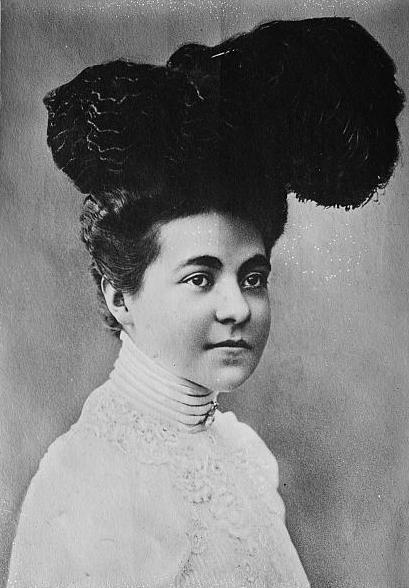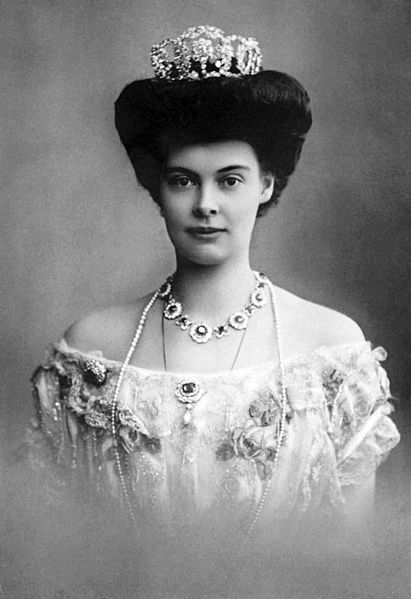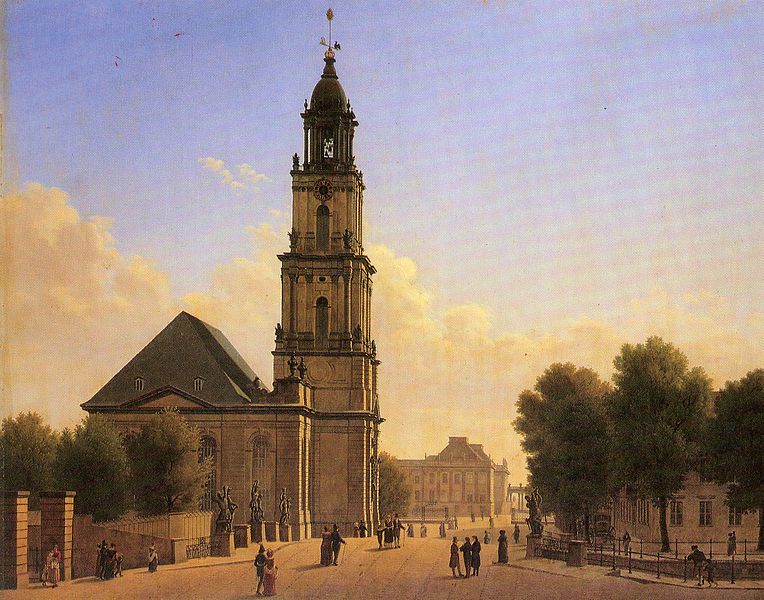 |
| Kaiser Wilhelm II |
In January
1931 Hermann Goering and his first wife Carin visited ex-Kaiser Wilhelm II at his estate in Doorn in the
Netherlands
‘We hope to profit by
winning the Kaiser over to the party, the sort of thing Hermann is adept at.’[i]
wrote Thomas
von Kantzow, Goering’s step son[ii]. Three of the ex-Kaiser’s
sons[iii] belonged to the Nazi
party. The old man was not quite the pushover that Goering may have expected.
There were fireworks between the two men. Carin wrote to her mother
‘They flew at each other at
once, they are both excitable and in so many ways they are so like each other.
The Kaiser has probably never heard anybody express an opinion different from
his own, and it was a bit too much for him at times.’[iv]
During the
visit Goering expressed support for the return of the monarchy.
Carin Goering
Hermine[v] Wilhelm’s second wife, was shocked by Carin’s
appearance and on the Goerings’ departure pressed money on her; ostensibly to
pay for treatment at a sanatorium at Bad Altheide in Silesia. A week after the
visit to Doorn, Karin collapsed and the doctors could not find a pulse, telling
Goering that Carin was dying. She was roused with stimulants but Carin was in
the latter stages of the tuberculosis that was to kill her in the October of
1931.
Empress Hermine
Longing to
be a real empress rather than live a retiring life at Doorn. Hermine had
visited Berchtesgarten in 1927, a visit that did not go unnoticed by the press.
In 1929 she visited the Nuremberg Rally, making no secret of her admiration of
the Nazis. Being stood up on a lunch date by Goering did not quash her
enthusiasm.
What did
Wilhelm think the Nazis could give him? Like many others before and after him,
Wilhelm persuaded himself, and was encouraged to do so, that the Nazis would do
what he passionately wanted and return the Hohenzollerns to the throne in
Germany. Wilhelm was not alone in this misapprehension, many of Germany’s
aristocrats believed that once in power the Nazis would restore the monarchy.
But the Nazis were only interested in power for themselves and were not
exerting all their time, effort and other people’s money to give it away once
gained.
Prince August Wilhelm
The Kaiser
was so interested in his discussions with Goering that he wrote to Hitler,
appointing Prince August Wilhelm his representative with the Nazi
party.
The Second Visit
In May 1932
Goering again visited Doorn for a week. This second visit was less successful
than the first, lacking Carin’s social skills to rein him in Goering was full
of braggadocio and addressed the household with Nazi propaganda. Goering’s
confidence was boosted by the Nazi performance in the April Presidential ballot
when Adolf Hitler had forced President Hindenburg into a second ballot.
Goering and Hitler at the 1927 Nuremberg Rally
Goering’s
manners did not coincide with the court etiquette followed at Doorn; on one
occasion he came down to lunch in plus fours. He also attempted to take over Crown Prince Wilhelm’s quarters. This infuriated the
ex-Kaiser, but he was held in check by Hermine, who entertained hopes of
getting Hitler to visit.
But ultimately
Wilhelm regarded Hitler as ‘a fool’
‘It fills me with a deep
sadness and concern to see what a groundless lack of conscience the demagogic Nazi leaders possess.’[vi]
and clashed
with those in his family who backed the Nazis. At the end of 1932 Wilhelm
demanded that Auwi and his son leave the Nazi party, along with Hermine’s son
George, who had been attacked on a Dutch train for wearing the swaztika[vii].
Even so
Wilhelm’s porcelain factory at Cadinen was doing good business turning out
busts of Hitler at a time when money was short for Hohenzollerns; the ex-Kaiser
had to sell some of his gold reserves.
Nazi Promises
Fritz Thyssen
In September
1932 Fritz Thyssen[viii], who had been a supporter of the
Nazis since 1923, invited his acquaintances to dinner to meet with Hitler, to
enable them to pose questions about the Nazis’ intentions. During this meeting
Hitler claimed that he was a supporter of the monarchy.
Crown princess Cecilie
The hopes of
the ex-Kaiser and many of the aristocracy that the Nazis would reinstate
monarchy in Germany were to be dashed. Hitler had never had any intention of
doing so, despite his schmoozing of members of the royal family in the autumn
of 1932. His meeting with Crown Princess Cecilie was not a success; as Hitler left
the room Cecilie was overheard to say,
‘Open the windows quickly,
it smells here!’[ix]
This
comment, clearly meant to be heard by her visitors, may have prompted Hitler’s
comments to the British journalist Sefton Delmer in November. He mentioned a rumour that the British
government intended to restore the monarchy;
‘Germany would go up in
flames if anyone tried to put the Hohenzollerns back. Nor have I the slightest
intention of becoming a race horse for a royal jockey to jump on my back just
as I am about to pass the winning post.’[x]
Otto Meissner
But on 22nd
January 1933, while Hitler was in the throes of seducing the Hindenburgs,
Goering was reassuring Hindenburg’s Chief of Staff, Otto Meissner, leaving him with the understanding that
‘A Hitler cabinet would
eventually move to restore the monarchy, an obvious attempt to curry favour
with Hindenburg, who made no secret of remaining a convinced monarchist.’[xi]
Just over a
week later Adolf Hitler was Chancellor of Germany. The aristocrats and
conservative politicians thought they held a trump card in Franz von Papen[xii] as Deputy Chancellor. There were
only two other Nazis in the cabinet[xiii] and it was believed
that Hitler, Goering and Wilhelm Frick would be reined in by the majority. History would prove how
very wrong they were.
The German Reich and the Hohenzollerns
Garrison Church Potsdam
A nod was
made in Wilhelm’s direction at the Garrison Church in Potsdam on 21st March,
where a church service was held for the opening of the Reichstag. A seat had
been placed for Wilhelm, which stood symbolically empty throughout the
proceedings, members of the royal family were positioned around the chair.
Hindenburg and Hitler at the Garrison Church
As he
entered the church Hindenburg turned and saluted the empty chair. In contrast
to the uniformed President the Chancellor, in evening dress, cut a poor figure;
‘Like a timid newcomer being
introduced by an important protector into a company to which he does not
belong.’[xiv]
Hitler never
enjoyed being upstaged, whether by a more impressive personage or an empty
chair.
In the late
summer of 1933 Goering, now secure in his position as Minister-President of
Prussia, agreed to pay the ex-Kaiser, the Crown Prince and the other Hohenzollern
princes an annual allowance. There were reports that part of the settlement was
an agreement by the Hohenzollerns not to criticise the Nazi party.
Franz von Papen
The
conservatives were concerned that once the aged Hindenburg died there would be
no-one capable of putting the brakes on Nazi excesses. Hoping that Hitler would
subordinate himself to a monarch in the shape of Crown Prince Wilhelm; Franz
von Papen, by now little more than a cipher, steeled himself in March 1934 to
raise the subject with Hitler Hitler apparently looked on the suggestion with
interest;
‘I was surprized how
willingly he fell in with the idea……….But Hitler insisted that the internal
situation must first be consolidated and all treaty limitations on sovereignty
removed before a monarch could hope to maintain his position.’[xv]
Von Papen
then discussed the matter with Hindenburg, now a very frail 87. Hindenburg
decided to deal with the matter by leaving a political testament to the nation,
endorsing a return of the monarchy. Eventually Hindenburg removed this endorsement
from his testament and instead included it in a private letter to Hitler, which
was delivered to him by von Papen on 15th August.
Hitler did
not publish this private letter after Hindenburg’s death, having made himself
jointly President and Chancellor of Germany on the same day that Hindenburg
died. The dream of restoring the monarchy in Germany died on 2nd
August 1934.
Bibliography
The Last
Kaiser – Giles MacDonogh, Phoenix Press 2001
Goering –
Roger Manvell & Heinrich Fraenkel, Greenhill Books 2005
Royals and
the Reich – Jonathan Petropoulos, Oxford University Press 2006
Memoirs –
Franz von Papen, Andre Deutsch Ltd 1952
The Devil’s
Disciples – Anthony Read, Pimlico 2004
I Paid
Hitler – Fritz Thyssen, Hodder & Stoughton 1941
Adolf Hitler
– John Toland, Book Club Associates 1977
www.wikipedia.en
[i]
The Devil’s Disciples - Read
[ii]
By Carin’s first husband Nils von Kantzow
[iii]
The Crown Prince was a fellow traveller, Prince August Wilhelm (Auwi) was a
member of the party eventually rising to the rank of Gruppenfuhrer in the SS
and Prince Eitel Freidrich was also interested in national Socialism
[iv]
The Devil’s Disciples - Read
[v]
Known as Hermo
[vi]
The Last Kaiser - MacDonogh
[vii]
After calling his assailants ‘a bunch of Dutch Jews’ he had to be escorted back
to Doorn
[viii]
Head of the Thyssen mining and steel making company
[ix]
Adolf Hitler - Toland
[x]
Ibid
[xi]
Royals and the Reich - Petropoulos
[xii]
A far right conservative politician who had served as Chancellor during 1932
[xiii]
Goering was Reich Minister without Portfolio and Acting Prussian Minister of
the Interior with direct control over police in Germany’s largest lander. And Frick
as Minister of the Interior, a job he was to keep until 1943 when he was
replaced by Heinrich
Himmler
[xiv]
Adolf Hitler - Toland
[xv]
Memoirs – von Papen










No comments:
Post a Comment
Note: only a member of this blog may post a comment.